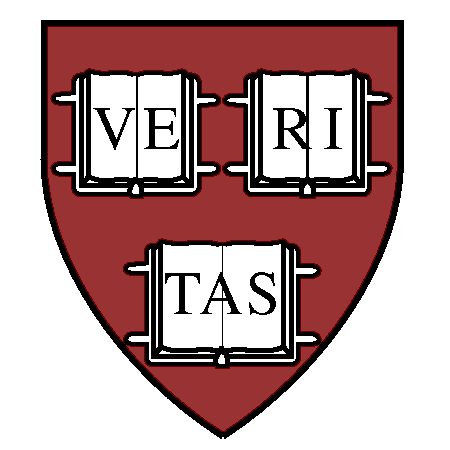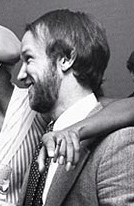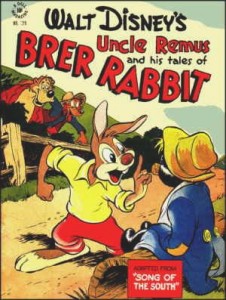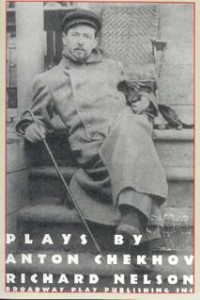 Almost two months had passed by my Harvard freshman door. It was 1961, early November, and the air was crisp and blue-gray. I had moved into Pennypacker Hall from a smallish farm town 60 miles northwest of Los Angeles, the smartest of 900 kids graduating from a large public high school that had never sent a student to the Ivy League in its 64-year history. My admission, with headlines bolding its uniqueness, had blossomed on the front page of our daily newspaper the previous April. A month later there was a letter to the editor from a retiree in Arizona who peevishly and poignantly reset the record with his story of a 1933 admission to Yale that he had turned down due to lack of funds.
Almost two months had passed by my Harvard freshman door. It was 1961, early November, and the air was crisp and blue-gray. I had moved into Pennypacker Hall from a smallish farm town 60 miles northwest of Los Angeles, the smartest of 900 kids graduating from a large public high school that had never sent a student to the Ivy League in its 64-year history. My admission, with headlines bolding its uniqueness, had blossomed on the front page of our daily newspaper the previous April. A month later there was a letter to the editor from a retiree in Arizona who peevishly and poignantly reset the record with his story of a 1933 admission to Yale that he had turned down due to lack of funds.
The first month at Harvard had been manageable, although I had previously read few things more dense than a textbook. The next couple of weeks crosscut my footing with assignments in Aristotle and Piaget, and I began to teeter. I anesthetized my anxiety about insufficient studying by playing contract bridge, and on this particular night I was trolling the halls, searching for a fourth.
I had met and spoken to the chaps in Pennypacker 25 more than once, but they were exotics. They had “prepped” at Exeter, of which I knew little, but since arriving in Cambridge I had been encouraged to understand that it was one of the finest schools in the nation. I hadn’t prepped at all. I had attended Hueneme High School, notable only for its bizarre (why-KNEE-me) pronunciation. Accordingly, I assumed that Henry, Woodrow, Tom, and George were substantially more educated than I.
Woodrow rapidly became a sophomore and left the freshman dorm.
Tom drank himself into increasingly less intelligent stupors..
Henry was friendly, smiled abundantly, and appeared to study frequently.
 George was George William Swift Trow III, “Swifty” to his close friends, but “George” to me. He was a slight, sandy-haired Loki whose prickly words left arched contrails in my brain. He spoke rapid cadences of brilliance that purposefully surprised and intimidated.
George was George William Swift Trow III, “Swifty” to his close friends, but “George” to me. He was a slight, sandy-haired Loki whose prickly words left arched contrails in my brain. He spoke rapid cadences of brilliance that purposefully surprised and intimidated.
I knocked, entered at George’s call, and invited him to play. He was alone in the room, sitting at his desk, staring at his fingernails or perhaps nothing.
“When are you starting?” he asked brightly.
“Right now,” I responded hopefully.
“Well, if you can wait about 40 minutes, I’d love to play. But I’ve got an English paper due tomorrow.”
There was nothing in his typewriter and nothing on his desk top.
“What’s the assignment?” I asked.
“Chekhov’s The Three Sisters, but it’s only supposed to be five pages, so if you can wait….” He rolled a blank sheet around the platen of his Smith Corona.
 I had a misty idea who Chekhov was, but I knew that a five-page paper would take far longer than 40 minutes to write. I mumbled an okay, and started to leave, thinking about who else might want to play…maybe one of Herb Fox, Stu Bear, or Tom Rabbitt, the fellows across the hall in what we had come to call the “Uncle Remus Room”. My hand on the doorknob was stopped by George’s compellingly intriguing request—
I had a misty idea who Chekhov was, but I knew that a five-page paper would take far longer than 40 minutes to write. I mumbled an okay, and started to leave, thinking about who else might want to play…maybe one of Herb Fox, Stu Bear, or Tom Rabbitt, the fellows across the hall in what we had come to call the “Uncle Remus Room”. My hand on the doorknob was stopped by George’s compellingly intriguing request—
“I need some inspiration. Give me a phrase, any phrase, something to help me get started.”
A imp inside me emerged and clapped his hands gleefully. “Neon green lights,” I said without a particle of conscious thought. It was a brilliant riposte. George’s commanding superiority had been met by my own splendid and unpredictable nonsense. I glanced, watching for George to acknowledge my unreturnable cross-court point. A small smile lifted his eyes.
“Perfect,” he said and then began typing furiously.
I dropped my hand from the doorknob and walked slowly and with great curiosity toward his desk. His fingers clacked the keys, the carriage jinked left and left relentlessly, and the bell rang. I looked over his shoulder and read in disbelief:
 “In Anton Chekhov’s The Three Sisters, the past, the present, and the future come together like the neon greenness of the not-too-distant dawn.”
“In Anton Chekhov’s The Three Sisters, the past, the present, and the future come together like the neon greenness of the not-too-distant dawn.”
At that instant I was both lifted and dropped. I was in the presence of genius, and if expected to compete, I would certainly pale. I slumped and quietly left the room.
Sitting in depression on my bed 40 minutes later, I had come up with no better plan to improve my life. Contract bridge still seemed to be the short-term solution…and I was still one hand short.
I knocked on George’s door, heard the typewriter, and entered just far enough to lean on the jamb.
“Almost done,” he said without turning his head. Four typed pages were spread out on his bed, and he was three-fourths of the way down the fifth page. George’s typing stopped. I waited respectfully.
“I’m stuck,” he muttered. “I need a late-19th Century Russian critic. Someone famous in a small, but influential circle.”
He was thinking out loud, not really asking me anything. He stared at the paper. Finally I spoke. “How about Tudrus Zlutchin?” I asked, spotting a final, desperate opportunity to regain some dignity.
“Who was he?” George asked with some interest.
The hook was in. I set it. “From Nizhni Novogorod. Born circa 1835. Died 1905. His circle was undoubtedly small, but in my estimation, undoubtedly influential. And according to what has been told to me, he was very much a critic. He was my father’s father’s father.”
“Perfect,” George said and jumped back onto the keys. I walked quickly and looked over his shoulder.
He had typed:
“As Tudrus Zlutchin, obscure 19th Century Russian critic once wrote: ‘We are more products of our times than we are of our parents.'”
George whipped the page out of the typewriter, stood, stretched, and sealed my fate, “Let’s play bridge.”
George’s paper got an “A.”
I remember him fondly and with some awe undiminished by years of very little contact. He was arch and worked at The New Yorker. But during that freshman dorm stint, before our different backgrounds separated us, he gave me what was undoubtedly meant as a compliment: “You are one of the only people who did not go to prep school that I would consider a friend.”






3 Comments on “George W. S. Trow (1943-2006)”
I find your pieces all interesting. Most surprising is that there is a kind of sadness or at least wistfulness that is a higher percentage of the feelings you express than I would have expected of you. Maybe I’m saying it differs from what my blog would be like if I had one. It makes me kind of wistful that I don’t have one. See what I did there?
Good observation. I suspect that wistfulness is part of being 63.
I happened on your blog today, and, of course, went immediately to “Harvard.” By, perhaps, coincidence, my wife and I have just returned from Cambridge, where we attended a 3 day intensive and exciting orientation for the Harvard Advanced Leadership Initiative, where I will be a Fellow for a year starting in January. See http://www.advancedleadership.harvard.edu for more. Your reminders of the College in those early days, particularly your homage to Trow, resonate strongly with me. The fellows across the hall at the top of Grays Middle were ultra prep (St. Paul’s/Groton) and delighted, when they even took note of us farmboys, in checking us out for cornsilk. But, we learned to cope, after all.
Comments are closed.